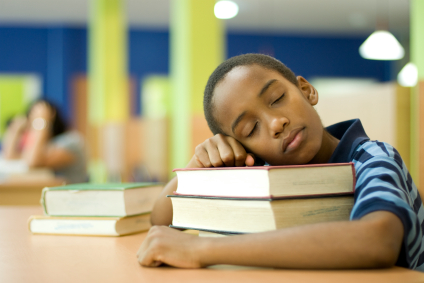It can be tough to make sure children get a good night’s sleep, but sufficient sleep can improve learning, health and mood. During the COVID-19 pandemic, healthy sleep is especially important for children and teens. More than a third of parents say that online learning due to the pandemic has affected their children’s amount of sleep, according to an American Academy of Sleep Medicine survey.
In a health advisory, Healthy Sleep for Children and Teens in a Pandemic, the AASM encourages positive sleep habits to promote health and well-being in children and adolescents. While it’s been difficult to maintain sleep routines during the pandemic, good sleep behaviors are more important than ever and will have positive outcomes. For quality, healthy, adequate sleep, the AASM offers these recommendations:
- Ensure your child gets enough sleep for their age. That’s 9-12 hours a night for school-aged children and 8-10 hours for teenagers.
- Keep regular bedtimes and wake times, even on weekends.
- Minimize screen time before bed and keep screens out of the sleep environment.
- Ensure regular schedules for activities and exercise, outdoors when possible.
- Maintain regular meal times and encourage a healthy diet.
To further encourage good sleep habits, the AASM is celebrating Student Sleep Health Week Sept. 14-20. More than half of parents with school-age children say they have a child or teen who does not get enough sleep on school nights. Regardless of whether your child is attending school in-person, remotely or some combination of the two, it’s important to prioritize their sleep and break the bad habits that may have arisen during the pandemic.
Sleep is one of the three pillars of a healthy lifestyle, along with nutrition and exercise. Students who get the recommended hours of sleep on a regular basis tend to experience improved attention, behavior, learning, memory, emotional regulation, quality of life, and mental and physical health.
Authored by:
Jennifer Gibson





